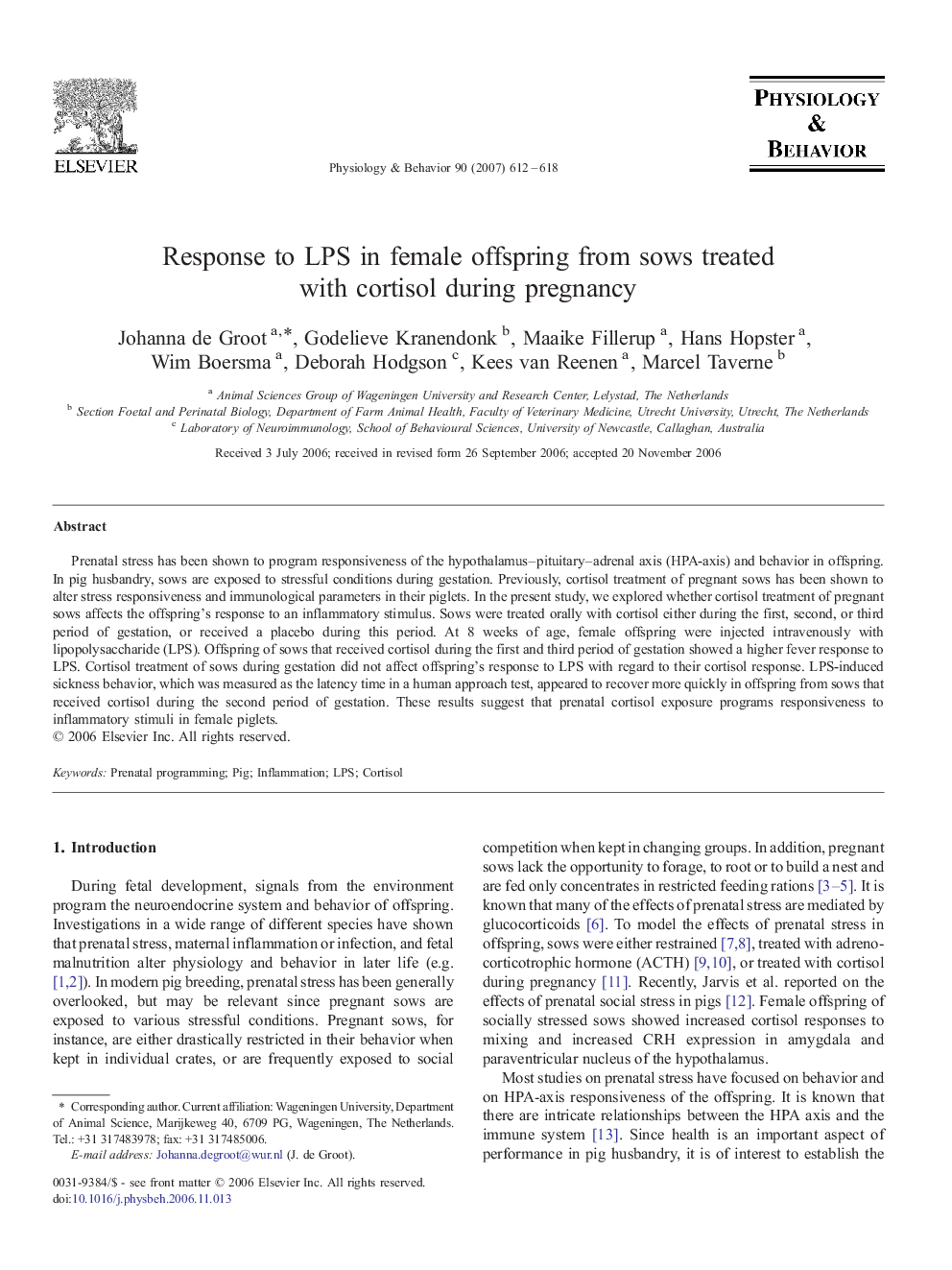| Article ID | Journal | Published Year | Pages | File Type |
|---|---|---|---|---|
| 2846131 | Physiology & Behavior | 2007 | 7 Pages |
Prenatal stress has been shown to program responsiveness of the hypothalamus–pituitary–adrenal axis (HPA-axis) and behavior in offspring. In pig husbandry, sows are exposed to stressful conditions during gestation. Previously, cortisol treatment of pregnant sows has been shown to alter stress responsiveness and immunological parameters in their piglets. In the present study, we explored whether cortisol treatment of pregnant sows affects the offspring's response to an inflammatory stimulus. Sows were treated orally with cortisol either during the first, second, or third period of gestation, or received a placebo during this period. At 8 weeks of age, female offspring were injected intravenously with lipopolysaccharide (LPS). Offspring of sows that received cortisol during the first and third period of gestation showed a higher fever response to LPS. Cortisol treatment of sows during gestation did not affect offspring's response to LPS with regard to their cortisol response. LPS-induced sickness behavior, which was measured as the latency time in a human approach test, appeared to recover more quickly in offspring from sows that received cortisol during the second period of gestation. These results suggest that prenatal cortisol exposure programs responsiveness to inflammatory stimuli in female piglets.
